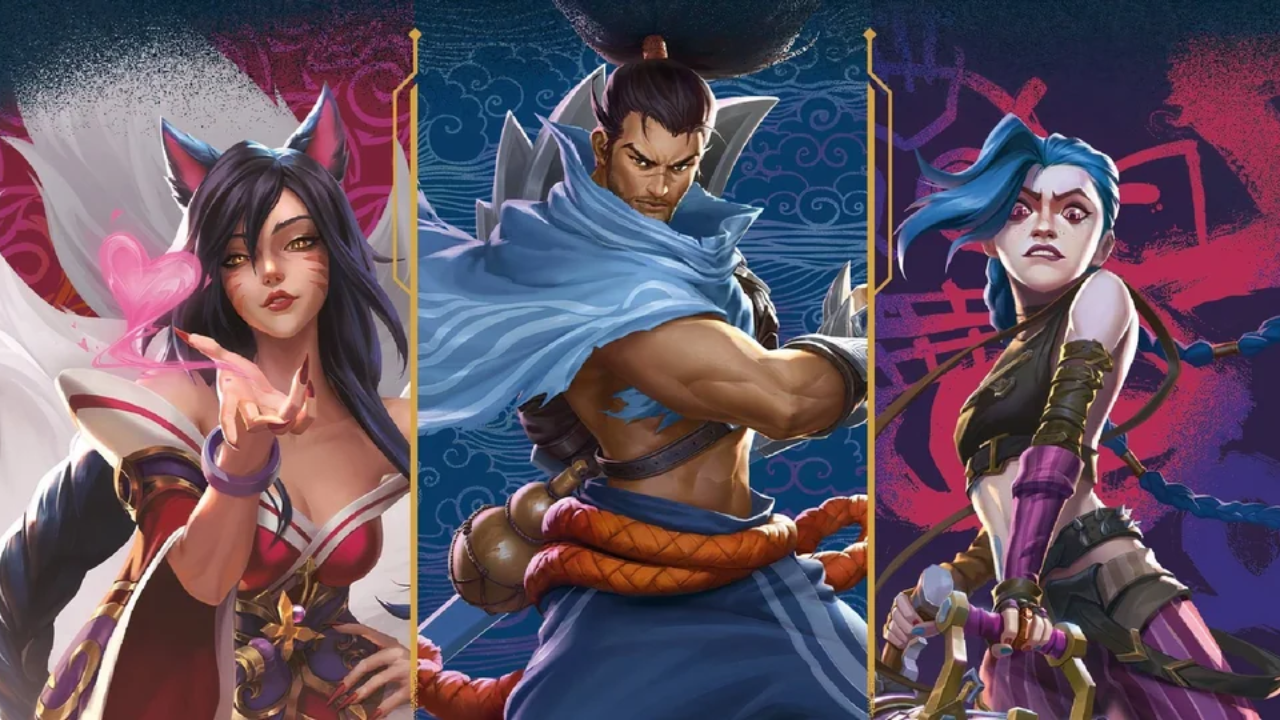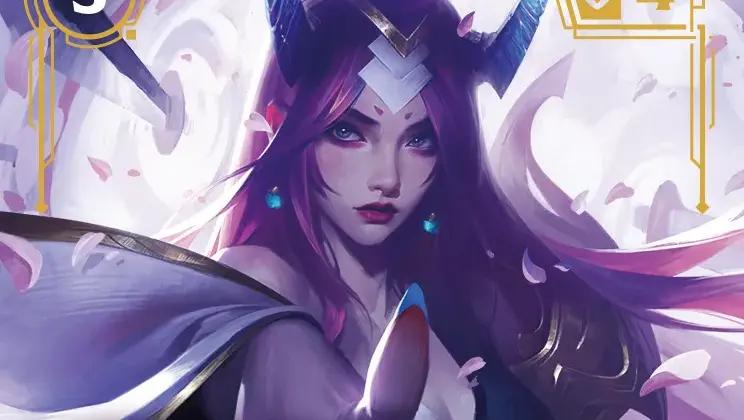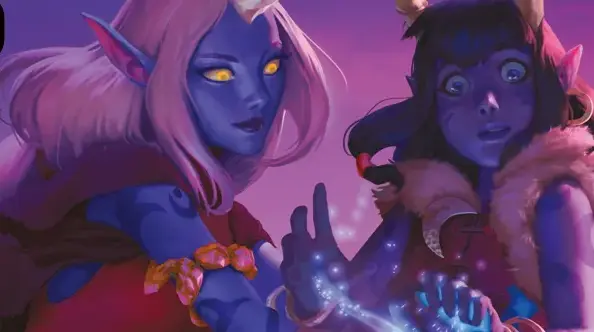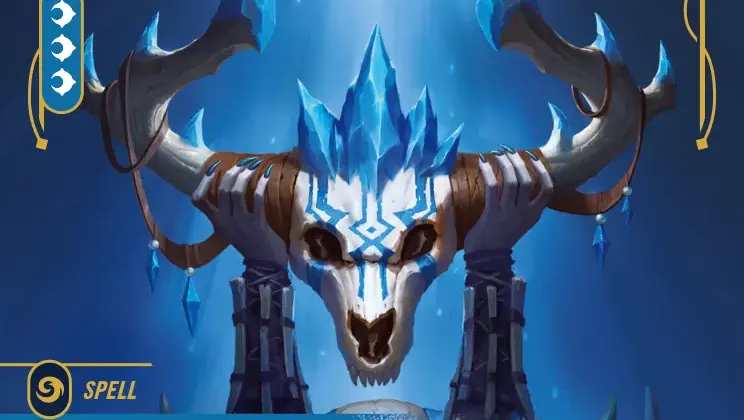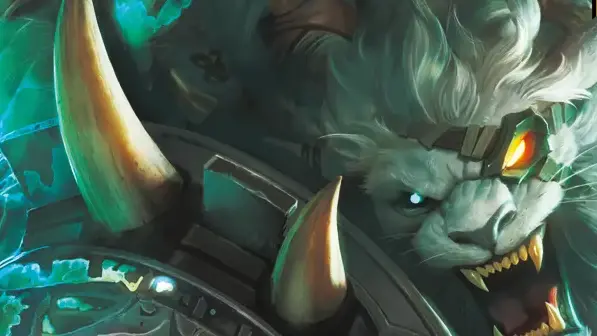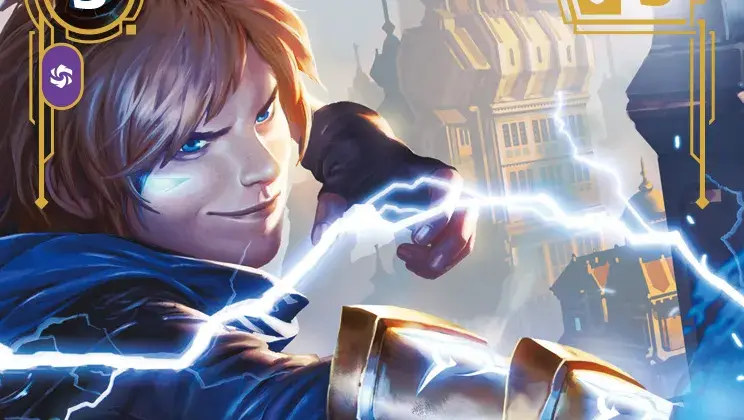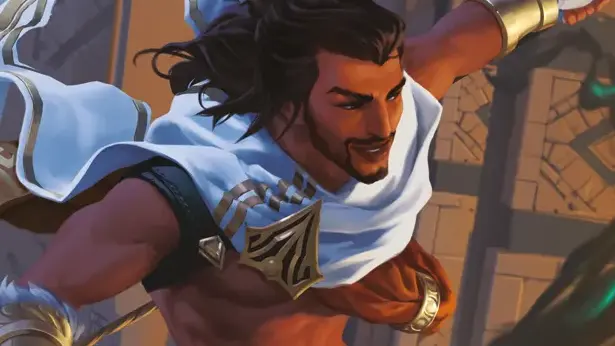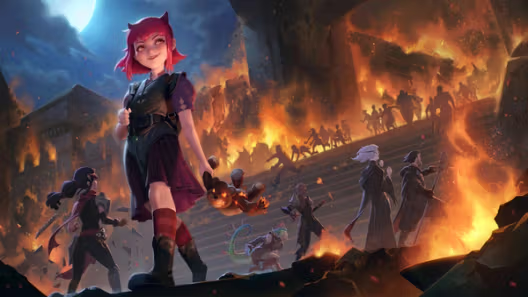Contents
So you've heard about Riftbound and want to jump in? Great choice! This card game mixes strategy with some serious combat action. But let's be real, it can feel a bit overwhelming when you're starting out. Don't worry though. I'm going to break down everything you need to know to start playing and actually win some games.
What's the Goal in Riftbound?
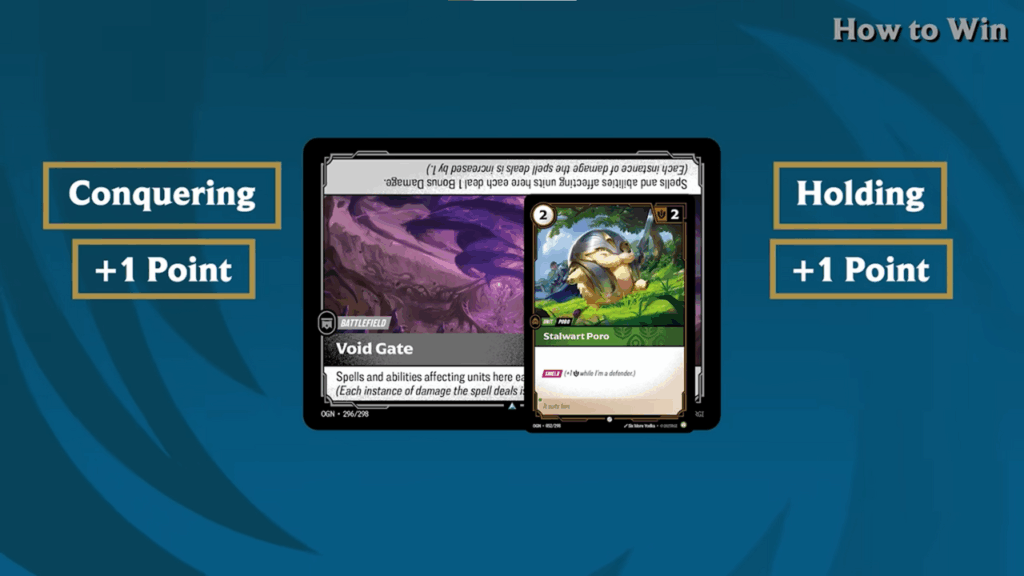
Here's the simple version: you need 8 points to win. That's it. Whether you're playing with 2, 3, or 4 players, you're racing to hit 8 points first.
You get points in two main ways. First, you can conquer a Battlefield by attacking it successfully. Second, you can hold a Battlefield by just having a unit there when your turn starts.
However, you can't score your 8th point from conquering unless you've also scored from every other Battlefield that same turn. Most of the time, your winning point will come from holding a Battlefield instead.
Building Your Deck
Before you can play, you need to put together your deck. Here's what you need:
- 1 Legend - This is basically your commander
- 40 Main Deck cards - Must include at least one Champion Unit that matches your Legend
- 12 Rune Deck cards - These are your resources
- 3 Different Battlefield cards
Your Legend determines what cards you can use. Each Legend has specific Domains (think of them as colors or factions). For example, Master Yi - Wuju Bladesman uses Calm (green) and Body (orange) cards. You can only put cards in your deck that match your Legend's Domains.
Your Rune deck is simpler. Just pick 12 Runes that match your Legend's Domains. You could go all-in on one type or mix them up however you want.
Setting Up the Game
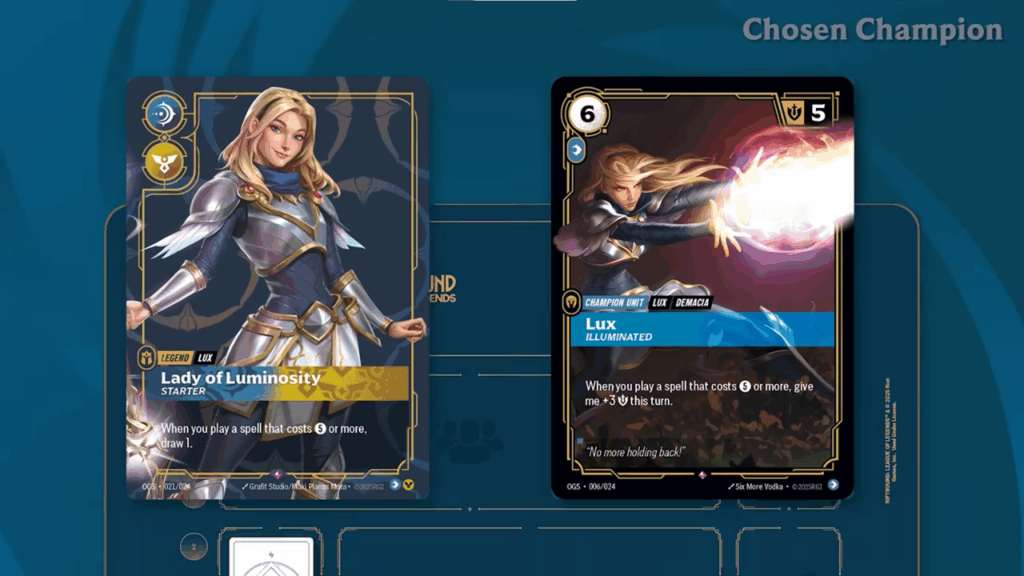
First, everyone shows their Legend and picks their Chosen Champion from their deck. This Champion starts the game off to the side, face-up. You can play it anytime like it's in your hand.
Shuffle your Main Deck and Rune Deck separately. In a 2-player game, each person secretly picks one Battlefield and reveals it. Figure out who goes first, randomly.
Now draw 4 cards. These form your starting hand. You get one chance to mulligan, that means you can put up to 2 cards on the bottom of your deck and draw new ones. Choose all the cards you're replacing at once.
How Your Turn Works
At the start of each player’s turn, there’s a rule known as ABCD:
- A: Awaken
- B: Beginning
- C: Channel
- D: Draw
Awaken Phase
Super simple, just turn all your cards upright (Ready). Cards are either Ready (upright) or Exhausted (sideways). You can use Ready cards, then they become Exhausted. This phase basically resets everything.
Beginning Phase
This is where you score points! Count how many Battlefields you have units at. You get 1 point for each one. On turn one, this will be zero, but that'll change fast.
Next, you Channel 2 Runes from your Rune deck. Just take the top 2 cards and put them in front of you face-up and Ready. If you're going second on your very first turn, you get 3 Runes instead to help catch up.
Finally, draw 1 card from your Main Deck.
Action Phase
This is where the real game happens. You can do a bunch of different things here.
Playing Cards
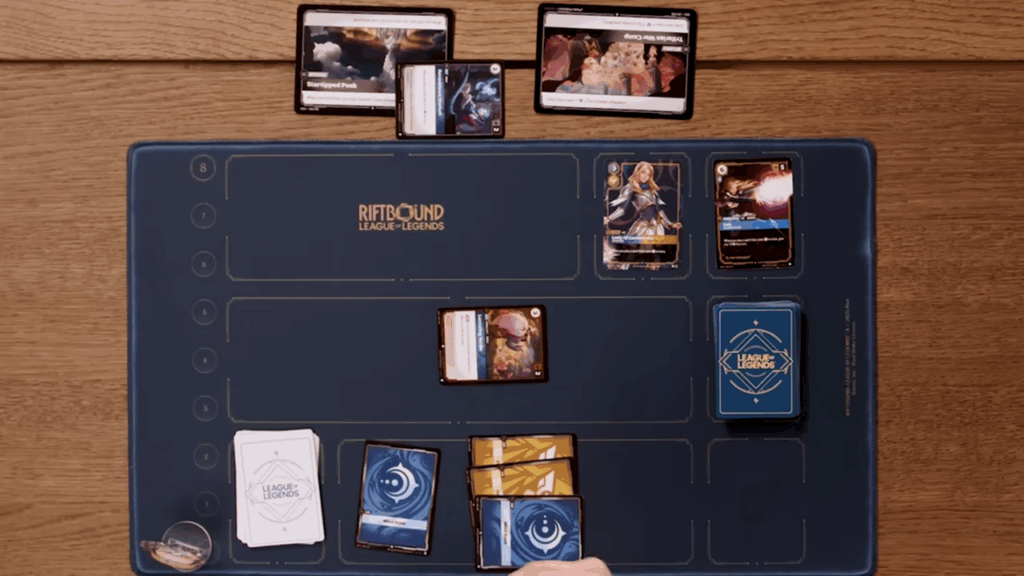
Most cards cost Energy to play. You'll see a number in the top left corner. To pay for it, you Exhaust (turn sideways) that many Runes. So a card that costs 4 Energy means you turn 4 Runes sideways.
Some cards also have a Power Cost underneath the Energy cost. To pay this, you actually Recycle Runes of the matching type (put them on the bottom of your Rune deck). The good news? You can use the same Rune to pay both costs at once.
Units
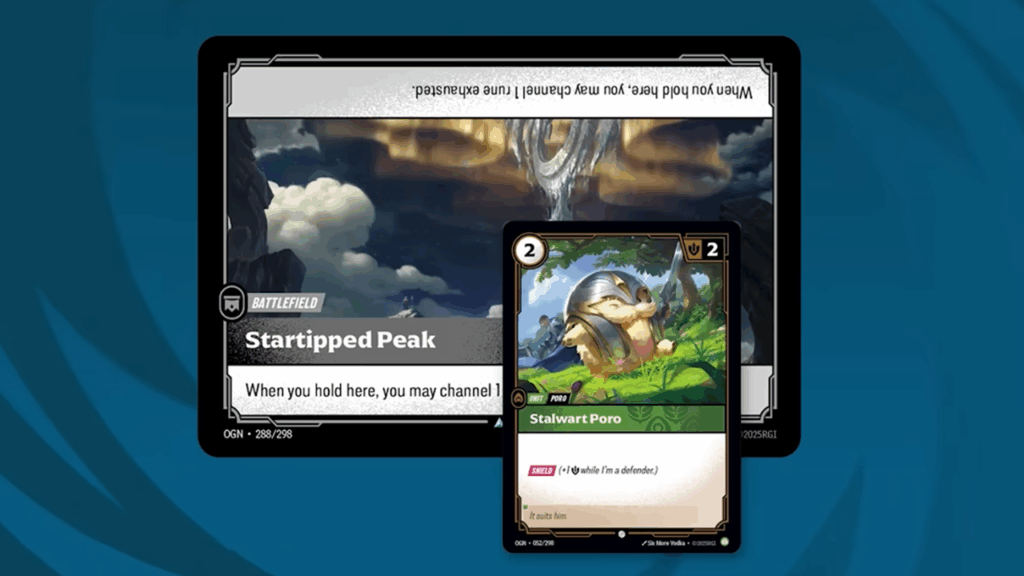
Units are your fighters. They have Might in the top right corner, this number shows how much damage they deal AND how much they can take. A unit with 5 Might hits for 5 damage and dies after taking 5 damage.
When you play a unit, it comes in Exhausted. That means you usually can't use it right away. You'll need to wait for your next turn when it becomes Ready again.
You can play units at your Base (the area right in front of you) or at any Battlefield where you already have units.
Spells

Spells are your tricks and instant effects. Most Spells are labeled Action, which means you can play them during your turn or during a Showdown. If it's not your turn, you can only play Action Spells during Showdowns.
Why would you use a Spell when there's no combat? Because you can stop someone from conquering an empty Battlefield! If they send just one unit to attack, you could bounce it back to their hand with a Spell and ruin their whole plan.
Gear
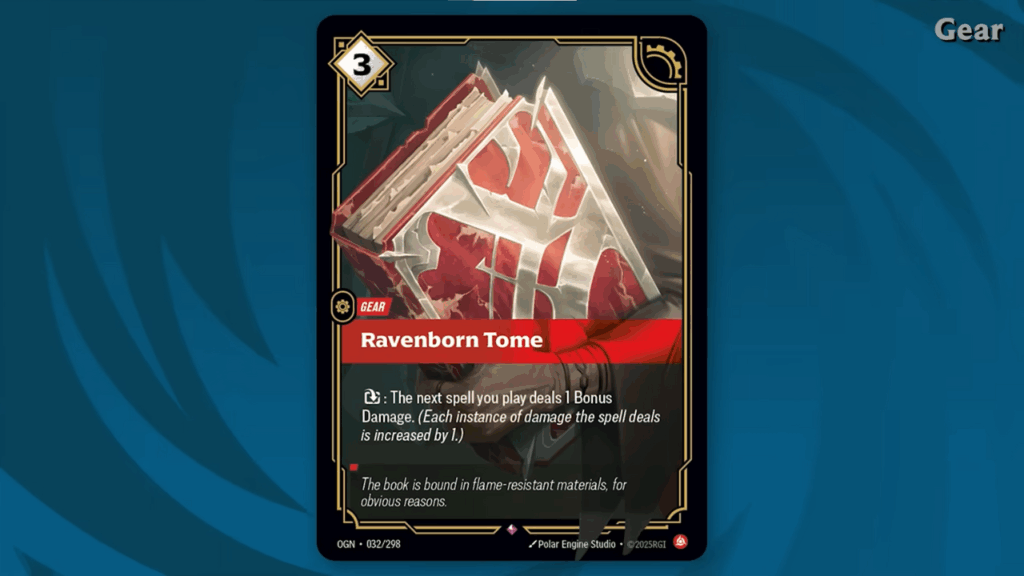
Gear enters play Ready, so you can use it right away. It always goes to your Base. Gear usually gives you ongoing abilities or ways to power up your units.
Seal cards are a common type of Gear. They cost no Energy but need a Power cost. Once in play, you can Exhaust them to pay for Power costs instead of Recycling Runes. Super useful!
Moving Units and Starting Fights
Here's where it gets exciting. You can Exhaust any number of Ready units to move them. Normally, units can only move between your Base and a Battlefield. Some units have Ganking though, which lets them move from Battlefield to Battlefield.
When you move units to a Battlefield, a Showdown begins. You're the Attacker. If someone has units there already, they're the Defender.
The Showdown
Both players can now play Action Spells, starting with the Attacker. You go back and forth playing cards or passing. Once both players pass in a row, you move to Combat (if there are still Attackers and Defenders).
Combat
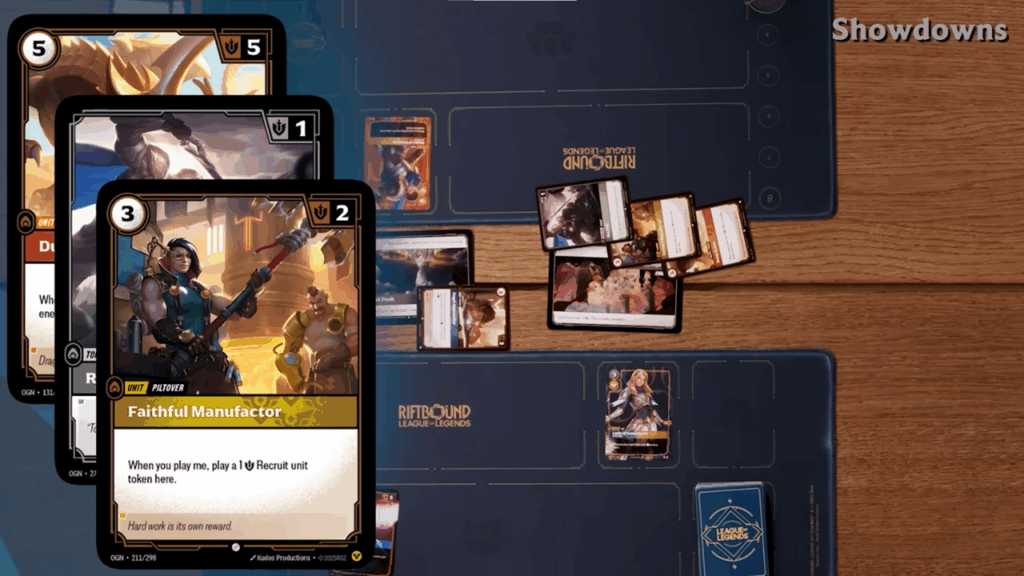
Combat is actually pretty simple. Add up all the Might from your attacking units. Your opponent does the same with their defending units.
Now you deal damage. The Attacker goes first. Pick an enemy unit and deal damage to it equal to your total Might. If you destroy it (deal damage equal to its Might) and still have damage left over, move to the next unit. Keep going until you run out of damage or units to hit.
Then the Defender does the same thing. Any unit that takes damage equal to its Might gets destroyed and goes to the discard pile.
If the Attacker has units left standing and the Defender doesn't, the Attacker conquers the Battlefield and scores a point. If both sides still have units, the Attackers just go back to Base.
Here's a quick example: You attack with two 5 Might units (10 total). Your opponent has one 8 Might unit. You deal 8 damage and destroy their unit. They deal 5 damage to one of your units, destroying it, then 3 damage to your other unit. One of your units survives with 2 Might remaining, so you win and conquer the Battlefield!
After combat, all surviving units heal back to full. Damage doesn't stick around.
Reactions
Some cards have Reaction abilities. These can be played in response to other Actions or even other Reactions. The key thing? Reactions resolve BEFORE whatever they're reacting to.
Let's say you're attacking with a 3 Might unit. You play a Spell to give it +3 Might, making it 6 total. Your opponent plays Gust as a Reaction, a card that can only hit units with 3 or less Might. Since Gust resolves first, your unit is still 3 Might when it checks. Gust bounces your unit back to hand, and your buff Spell does nothing. Reactions can be game-changers!
Winning the Game
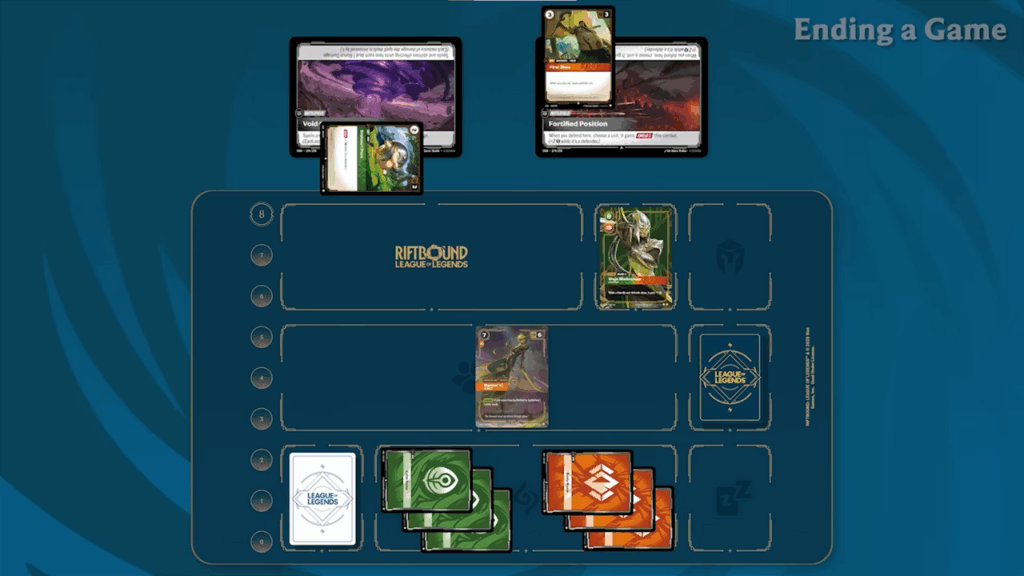
Keep taking turns back and forth. The first player to hit 8 points wins!
Remember that final point rule: You can't score point 8 from conquering unless you scored from every other Battlefield that turn too. If you're at 7 points with no Battlefields held, you need to either conquer both Battlefields in one turn, or conquer one and then hold it until your next turn.
Oh, and here's a nice bonus, every time you conquer a Battlefield but it doesn't win you the game, you get to draw a card.
Extra Stuff You Should Know
- Each Battlefield only gives you 1 point per turn max. You can't move a unit away and move a new one in to score twice.
- Signature Cards are special cards tied to specific Legends. You can only use them with their matching Legend, and you can't put more than 3 total Signature Cards in your deck. These are usually super powerful, so use them wisely!
- Legends have special abilities too. Many have Exhaust abilities (you'll see an arrow symbol). You can use these during your Action Phase, but NOT during Showdowns.
Multiplayer Changes
Playing with 3 players? The first player doesn't draw a card on turn one. You'll also use 3 Battlefields instead of 2.
Playing with 4 players? Only 3 Battlefields are used. The first player doesn't draw a card, and they don't get to pick a preferred Battlefield.
Final Tips
Riftbound rewards smart planning. Don't blow all your Runes early, you'll want some Ready for Spells during Showdowns. Pay attention to what your opponent is holding back. If they've got a bunch of Ready Runes at the end of their turn, they're probably sitting on tricks.
Your Chosen Champion can be played anytime, so save them for when you really need them. They're usually powerful and can turn a losing fight into a winning one.
Battlefields often have special effects when conquered. Read them carefully and plan around them. Some make you discard cards, others give you benefits.
Now get out there and start playing! The best way to learn Riftbound is by actually playing games. You'll make mistakes, but that's how you get better. Good luck, and may your Showdowns always go in your favor!
